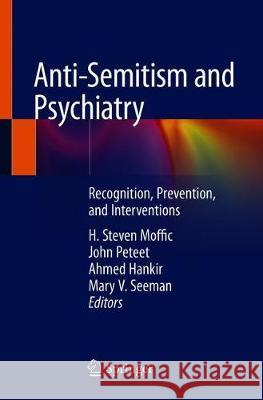Anti-Semitism and Psychiatry: Recognition, Prevention, and Interventions » książka
topmenu
Anti-Semitism and Psychiatry: Recognition, Prevention, and Interventions
ISBN-13: 9783030377441 / Angielski / Miękka / 2020 / 374 str.
Kategorie BISAC:
Wydawca:
Springer
Język:
Angielski
ISBN-13:
9783030377441
Rok wydania:
2020
Wydanie:
2020
Ilość stron:
374
Waga:
0.54 kg
Wymiary:
23.11 x 15.75 x 1.42
Oprawa:
Miękka
Wolumenów:
01











